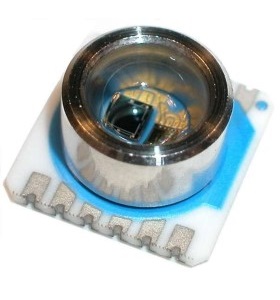
In the vast landscape of industrial processes, finding the perfect pressure transmitter is like choosing the right tool for a job. It’s not just about measuring pressure; it’s about precision, reliability, and compatibility.
Here, we’ll navigate the world of pressure transmitters together, helping you make an informed decision for your specific industrial application.
Understanding the Basics of Pressure Transmitters
Before diving into the selection process, let’s establish a common understanding of what a pressure transmitter is and how it functions.
A pressure transmitter is a crucial component in industrial automation, converting pressure signals into electrical signals that can be monitored and controlled. These devices play a pivotal role in ensuring the efficiency and safety of various processes.
Factors to Consider When Choosing a Pressure Transmitter
- Application-specific Requirements
One size does not fit all when it comes to pressure transmitters. Different industrial applications demand different specifications. Consider the temperature, pressure range, and the type of fluid or gas your pressure transmitter will be exposed to.
Whether it’s a high-temperature environment or a corrosive substance, understanding your application’s unique requirements is the first step towards a reliable choice.
- Accuracy Matters
In the world of precision instrumentation, accuracy is paramount. When selecting a pressure transmitter, pay close attention to its accuracy specifications. The last thing you want is a device that provides inconsistent readings.
Look for a transmitter with a high accuracy rating that aligns with your application’s needs. Investing in accuracy upfront can save you from costly errors down the line.

- Compatibility with Existing Systems
Integrating a new pressure transmitter into your industrial setup shouldn’t be a headache. Ensure that the chosen transmitter is compatible with your existing control and monitoring systems.
This not only streamlines the installation process but also prevents any potential conflicts that might arise in the future.
- Durability and Longevity
Industrial environments can be harsh, with conditions that put equipment to the test. When choosing a pressure transmitter, opt for durability.
Look for features such as rugged enclosures and resistance to environmental factors like dust and moisture. Investing in a robust device ensures a longer lifespan, reducing maintenance costs and downtime.
- Communication Protocols
In an era of interconnected systems, communication is key. Check if the pressure transmitter supports industry-standard communication protocols.
This not only facilitates seamless integration but also opens up possibilities for remote monitoring and control, adding an extra layer of flexibility to your industrial processes.
- Cost Considerations
While quality should never be compromised, it’s essential to find a balance between performance and cost. Evaluate your budget constraints and seek a pressure transmitter that offers the best value for your investment.
Consider the total cost of ownership, factoring in not only the initial purchase price but also long-term maintenance and operational costs.
Conclusion
Choosing the right pressure transmitter for your industrial application is a decision that should be made with careful consideration.
By understanding the specific needs of your application, prioritising accuracy, ensuring compatibility, and considering factors like durability and communication protocols, you can make an informed decision that enhances the efficiency and reliability of your industrial processes.
Remember, the right transmitter isn’t just a device; it’s a key player in the success of your operations.
